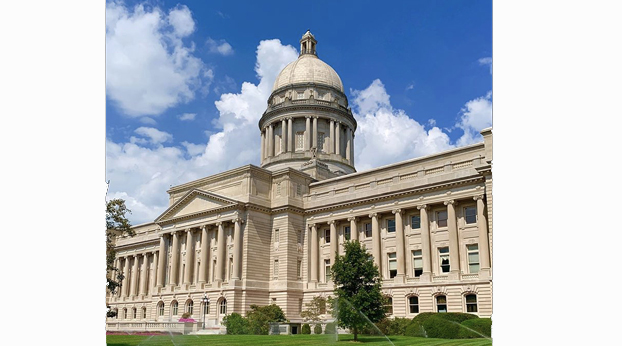Religious freedom in public schools sails to approval in House
Published 11:19 am Friday, March 10, 2023
|
Getting your Trinity Audio player ready...
|
Legislation that would allow more expression of religion in Kentucky’s public schools won easy approval in the House of Representatives on Thursday with little discussion on the floor.
Rep. Chris Fugate, R-Chavies, the sponsor of House Bill 547, told his colleagues, “This is a bill that protects teachers, coaches, faculty, and staff members’ religious freedom in the public schools.”
He noted a case where a football coach in the state of Washington was fired in 2015 by praying at his team’s games.
Trending
“A lawsuit was filed,” Fugate said, “and the case eventually ended up before the United States Supreme Court. In June 2022, the Supreme Court in a 6-3 ruling sided with the coach’s First Amendment right to religious freedom. Justice Neil Gorsuch wrote, ‘Respect for religious expressions is indispensable to life in a free and diverse republic, whether those expressions take place in a sanctuary, or on the field’.”
David Walls, executive director of The Family Foundation of Kentucky, applauded the measure.
“As the U.S. Supreme Court made clear in the Coach Kennedy decision, no American should ever be fired by the government for exercising their private religious expression, including saying a prayer,” he said. “HB 547 helps protect against out-of-state special interest groups who demand that schools adopt inaccurate interpretations of the First Amendment that unlawfully restrict the freedom of students and teachers. The exercise of First Amendment rights on public school campuses in Kentucky is a critical component of the education of our students.”
Rep. Daniel Grossberg, D-Louisville, was the only other lawmaker to speak on the bill. He told the chamber he received emails from Jewish and other minority religious organizations who opposed the bill and that it violated the separation of church and state.
“This bill would provide unnecessary shields, seeking to share their religious views on children, without their parents’ permission,” Grossberg said. “No child should have to bear the burden of having to seek out school authorities to stop the interference of what they are taught at home. Rather, children should expect that their school’s administration will protect them from implied coercion.”
The bill passed by an 81-12 margin and heads to the Senate for their consideration.






